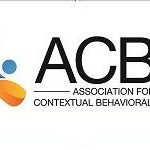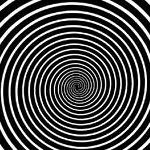Articles

Many individuals with eating disorders report that getting treatment isn’t the hard part of finally addressing the problem – it’s avoiding relapse during recovery. Given that anorexia is considered both a psychological and physiological condition, “curing” it isn’t necessarily possible – one can only hope to manage the disease on a day-to-day basis to avoid …
Read More

Behavior therapy tries to teach patients how their actions influence how they feel and empower them to change their lives by changing these behaviors. Therapy consists of several techniques used in tandem and all can be applied to anorexia treatment and recovery. Role Playing uses pretend situations to teach better responses. For example, a therapist …
Read More

Hypnotherapy is distinguished from hypnosis in two ways. The first is the goal – like the name implies, hypnotherapy is a type of therapy and treatment is the objective. This makes it different than other types of hypnosis, which may be for entertainment, memory recall, or used as a one-off cure for smoking cessation or …
Read More

Anorexia nervosa, commonly referred to as anorexia, is a serious life-threatening eating disorder that causes people to have the perception that they are overweight when, in fact, they are extremely underweight. Long-term effects of anorexia can include osteoporosis, brittle hair and nails, muscle wasting and weakness, heart damage and even death. Despite these potential negative …
Read More

The teen years are riddled with pressures that make body image a sensitive subject. Too often parents miss the warning signs of anorexia because they believe that being image-aware is a natural part of adolescence, especially for young girls. But if you suspect your teen has an eating disorder, it’s important to broach the subject …
Read More

People with eating disorders often have an obsession with fat and weight. They look in a mirror and see only imperfections, often believing they are much bigger than they really are, and they blame themselves for not restricting their diets enough. Negative self-talk is extremely common among women with eating disorders, but there are strategies …
Read More

Recovering from anorexia can be a lifelong process that requires many adjustments along the way. Goal-setting is an important component of long-term success, but knowing how to set these goals is just as important as achieving them. Here are some ways to ensure that your recovery goals will lead you to the outcomes you desire. …
Read More

The first question is, “What kind of doctor do I need?” In modern medicine, it seems everything is a specialty and anorexia isn’t much different. While a general practitioner can diagnose and even treat some eating disorders, anorexia is usually enough of a challenge that you’d prefer a referral. And that’s the first place to …
Read More

Since nine out of 10 diagnosed anorexics are female, less attention is given to another demographic: males who develop the disease. According to the National Eating Disorders Association, about 1 million young men in the U.S. suffer from anorexia – a conservative estimate, since fewer males seek treatment for eating disorders than females. Signs of …
Read More

While eating disorders tend to fully manifest in the teen and young adult years, signs of anorexia may be present in young girls, too. Parents will be the best line of defense in helping a young girl battle an eating disorder, so it’s important to be aware of signs and symptoms that may be present …
Read More
 Eating Disorder Self Test. Take the EAT-26 self test to see if you might have eating disorder symptoms that might require professional evaluation. All answers are confidential.
Eating Disorder Self Test. Take the EAT-26 self test to see if you might have eating disorder symptoms that might require professional evaluation. All answers are confidential.
Find a Treatment Facility Near You
Click on a state below to find eating disorder treatment options that could be right for you.










 Eating Disorder Self Test. Take the EAT-26 self test to see if you might have eating disorder symptoms that might require professional evaluation. All answers are confidential.
Eating Disorder Self Test. Take the EAT-26 self test to see if you might have eating disorder symptoms that might require professional evaluation. All answers are confidential.